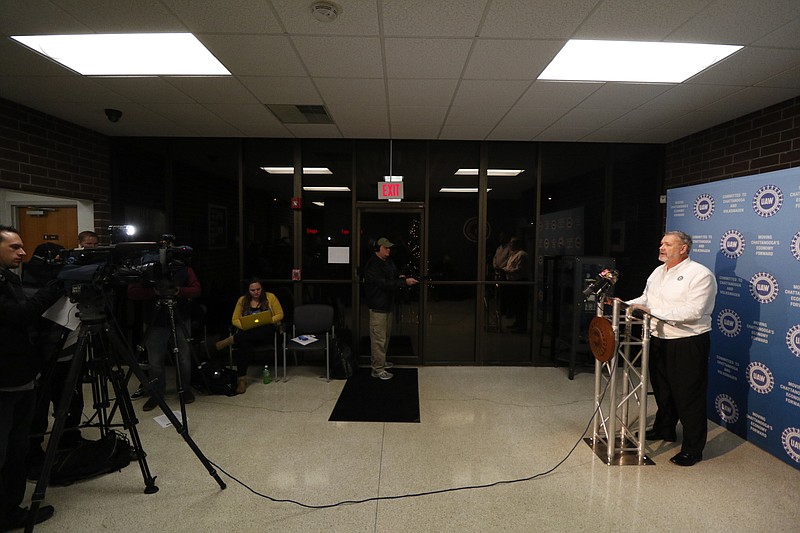Efforts to unionize Chattanooga's Volkswagen plant could be affected by a new labor ruling that makes it harder to organize a company's employees.
A Republican-majority National Labor Relations Board has reversed an Obama-era decision by the panel that had permitted so-called micro-unions made up of small groups of company workers.
In a 3-2 decision, the NLRB on Friday said a unionized unit of about 100 welders and "rework specialists" at a manufacturing company in Oregon was improper, and should include all 2,500 employees at the company's facility.
The issue of micro-unions is at the heart of an ongoing dispute at Chattanooga's VW plant, where a group of skilled trades workers voted 108 to 44 two years ago to align with the United Auto Workers.
While the NLRB had earlier certified that vote, citing its 2011 decision in the case of Specialty Healthcare, VW challenged it and refused to bargain with the employees, saying it wants its entire blue- collar workforce to decide the union issue. That issue currently is before the U.S. Court of Appeals for the District of Columbia.
VW plant spokesman Scott Wilson said Monday that VW officials continue to believe all of its employees should be allowed to vote together on the question of union representation.
"That is why we challenged the NLRB's certification of the micro-unit in the first place," he said.
In 2014, a wider vote of Chattanooga plant workers on UAW representation went against the union by a margin of 712 to 626.
UAW spokesman Will Pinkston said Monday the union had no immediate comment.
Dan Gilmore, a Chattanooga labor attorney who also teaches at the University of Tennessee at Chattanooga, said the NLRB decision may be too late to help VW in its pending appeal.
He said the NLRB's earlier decision related to VW was not subject to appeal. VW was forced to continue its challenge to the unit by refusing to bargain with UAW, Gilmore said.
That resulted in an unfair labor practice charge against VW, which in turn led to the NLRB favoring the UAW. That decision is the one before the appeals court, Gilmore said.
However, he said, should VW succeed in its appeal, it could have the case sent back to the NLRB and be in a better position.
Gilmore said the newly comprised panel "may look more favorably upon VW's refusal to bargain if it ultimately determines that the unit at issue was not appropriate for bargaining."
If that happens, "VW would not have a statutory duty to bargain with the inappropriate unit and there would be no basis for an unfair labor practice charge," he said.
"I still feel this is a long-shot though," Gilmore said.
The Economic Policy Institute said Monday that supporters of the new NLRB ruling want to make it easier for employers to defeat an organizing campaign by manipulating who is in a bargaining unit.
"By overturning this rule, the Trump administration has once again shown that it wants to make it harder for workers to organize and join unions," said the institute.
Contact Mike Pare at mpare@timesfreepress.com or 423-757-6318.
